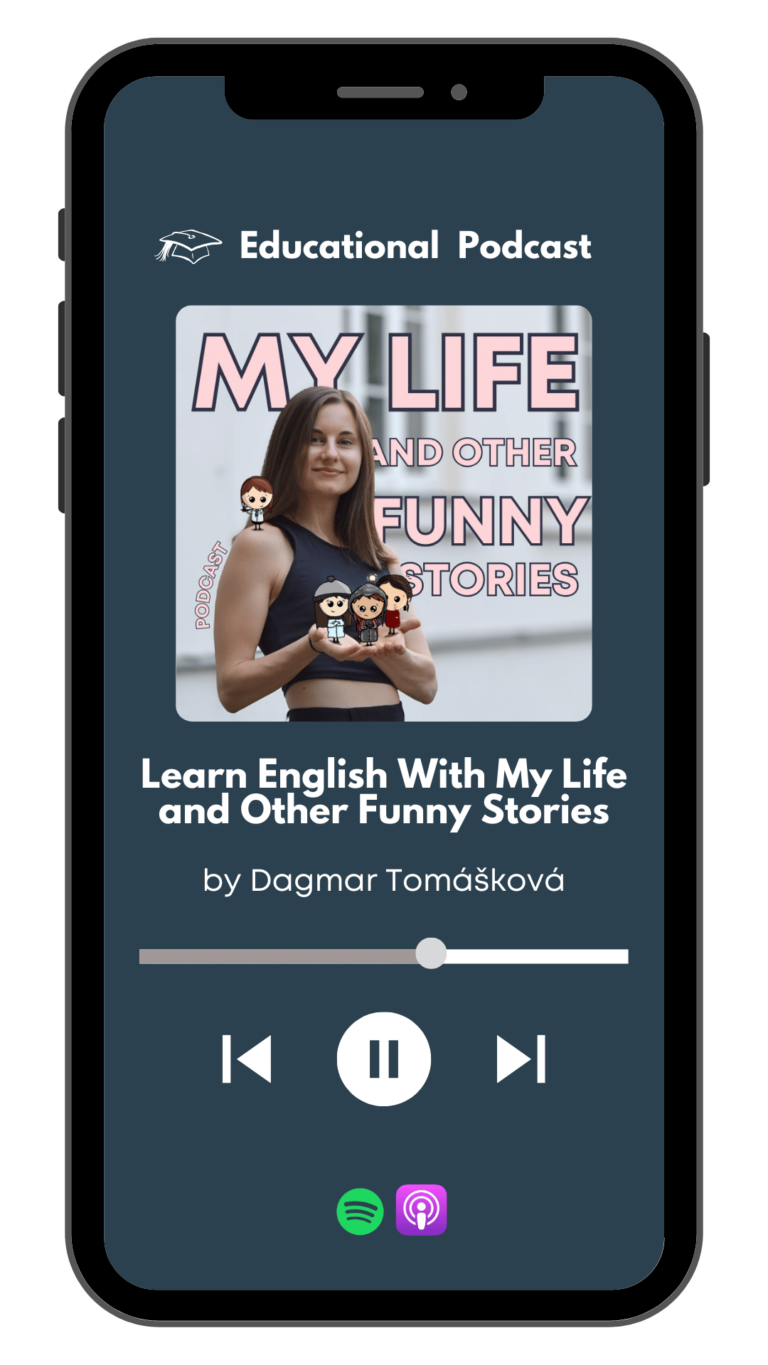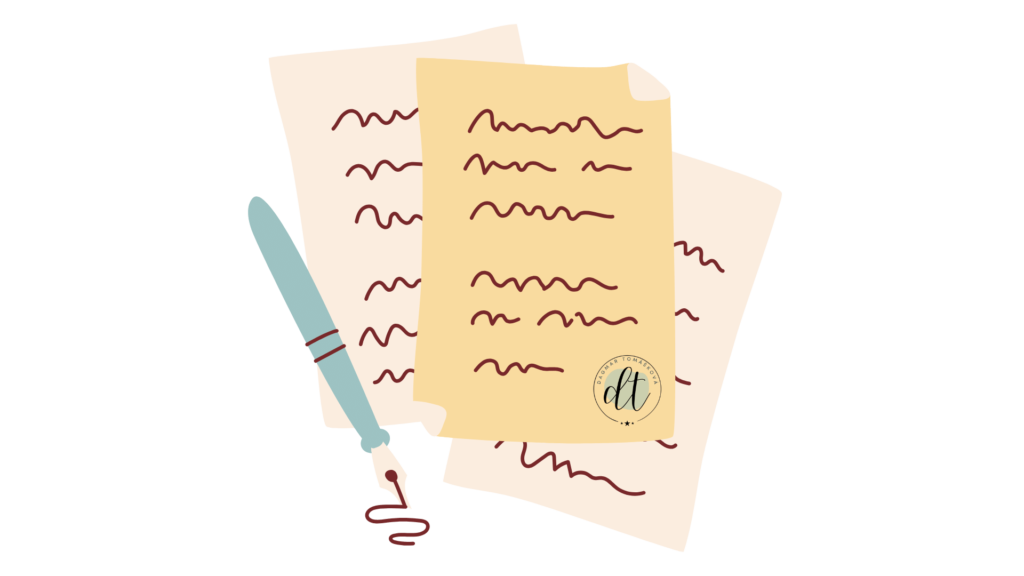
Ep.82: Bunnies, Chocolate… and Beating Women?! Easter in the US, UK and Czechia

Today, we’re diving into a holiday that is coming next week— Easter!
LISTEN TO THE EPISODE HERE:
Soon!


WRITTEN TRANSCRIPTION OF THE PODCAST
Hello and welcome to my podcast My Life and Other Funny Stories. My name is Dagmar Tomášková, I am an English tutor and coach and I created this podcast for English students who want to improve their oral comprehension. As always you can find the transcription of this episode and vocabulary list in the notes of the podcast.
Today, we’re diving into a holiday that is coming next week— Easter! Before we start, let me just tell you what preposition we use with Easter – because it is a holiday that lasts more than one day, we will always say AT Easter. For example, at Easter, people eat a lot of chocolate.
But as someone from the Czech Republic, I have to say… things get weird over here. I mean, I didn’t even consider it weird until I told my friend Audrey about it. I will tell you later about her reaction but you have to wait for it.
Let’s hop in — pun intended. And just to explain what it means when someone says “pun intended” – pun is something like a play on words – so when we say “pun intended” it means that you said something that was a play on words and you said it deliberately. For example here, I don’t think I need to explain it very much, but just to be sure, when I say “let’s hop in” when talking about Easter, I say it because it is a holiday of bunnies and bunnies hop. Okay, anyway…
let’s hop in.
Easter in the U.S.
So in the U.S., Easter is a big deal for many people. It’s a mix of religious (which means church-related) and commercial traditions.
Here’s what a classic American Easter looks like:
Kids wake up and go on an Easter egg hunt. That’s when plastic eggs full of candy or small toys are hidden around the house or garden, and children run around like wild chickens trying to find them. I think it is so fun, I wish we had THIS instead of…whatever WE have.
After that, there’s often a big family lunch or dinner, with foods like ham, mashed potatoes, and lots of sweet things.
And of course, the star of the show is the Easter Bunny. It is a rabbit that brings you chocolate. Makes total sense, right?
And in many households, it’s also a religious holiday. People go to church to celebrate the resurrection of Jesus. (Resurrection = when someone comes back to life, in a religious or spiritual context.)
Easter in the UK
Now in the UK, it’s quite similar to the U.S., but just a bit more… British. That means:
Fewer plastic eggs, more chocolate eggs the size of your head. I am not kidding, it is literally the holiday of chocolate.
Then, they also have a calm Sunday roast with the family.
They also get Bank Holidays — which are basically national days off. (Very important for tea-drinking and long walks.) Just like in the Czech Republic – we usually have Friday and Monday off. Americans don’t get any days off when it comes to Easter.
And yes, it’s still a religious holiday for many people.
So far, so good, right? Cute bunnies, chocolate, family. Lovely.
Czech Easter
Okay, so here’s what I told her:
„Well, Audrey, on Easter Monday, boys go around with hand-braided willow whips called pomlázky and they …hit girls on the legs or bum.
Her reaction was- “I’m sorry, WHAT?! You’re telling me there’s a holiday where women get spanked by singing boys and then they’re supposed to give them chocolate, eggs and alcohol? What the hell??”
Yes, that’s exactly what I am telling you, Audrey.
I love the description of this tradition from the internet:
In the Czech tradition, boys visit houses and gently whip girls while singing a little Easter rhyme. It’s supposed to bring health, youth, and fertility. (Fertility = the ability to have children, but in this context, just “new life” or “energy.”)
In return, the girls give them chocolate eggs, colored ribbons to tie on the whip, and sometimes even shots of alcohol. Yes — at 9 in the morning.
I don’t know, I would disagree a little bit with the “gentle whipping” – some guys really enjoy beating women…and that’s a little disturbing, isn’t it? But I guess that in the traditional sense, it is not that bad. Still, I always wished I was a boy at Easter because you get the good part and girls have to suffer through it. But I don’t celebrate it much anymore. And the world is suddenly a better place.
Small vocabulary window! Now, let’s talk about some of the fun words we used today! Because some of them might be a little more advanced.
Number 1: Resurrection – that means coming back to life (used especially for Jesus at Easter).
And Number 2: Fertility – that is the ability to have babies, or just being full of life and growth. For example, the field can be fertile and that means that it is possible to grow crops on it.
It’s always great to learn vocabulary through stories, because your brain remembers funny things way better than boring textbook examples.
So, wherever you’re celebrating Easter — with chocolate eggs, giant roasts, singing boys with sticks, or nothing at all — I hope you learned something new today.
And that’s it. Thank you for listening! If you liked this episode, please leave a five-star rating and share it with your friends. Don’t forget, you can find the transcript and vocabulary list in the podcast notes. See you next time.

VOCABULARY LIST
preposition – předložka
pun – slovní hříčka
deliberately – záměrně, úmyslně
religious – náboženský
commercial – komerční (zaměřený na nakupování a reklamu)
Easter egg hunt – honba za velikonočními vajíčky
resurrection – vzkříšení, návrat k životu
context – souvislost, kontext
Bank Holidays – státní svátky (v Británii)
national day off – státní volno
hand-braided – ručně pletený
willow whip – pomlázka (doslova „vrbový bič“)
spanked – nařezáno, dostat výprask
fertility – plodnost (schopnost mít děti, ale také „nový život“ nebo energie)
ribbons – stužky
shots of alcohol – panáky alkoholu
disturbing – znepokojivý, zarážející
suffer through – protrpět
celebrate – slavit
vocabulary window – okénko se slovní zásobou
field – pole
fertile – úrodný
crops – plodiny